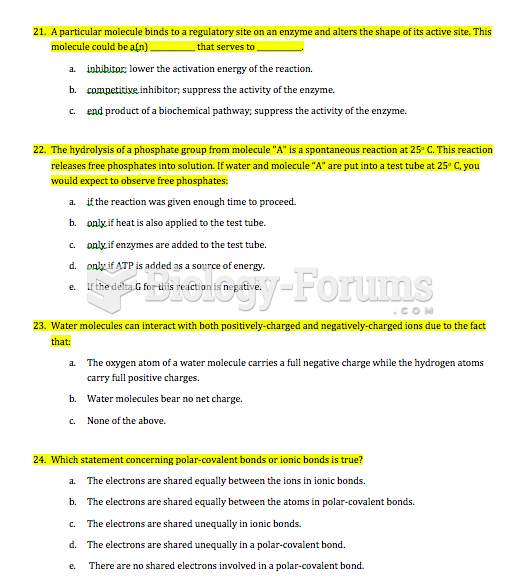Answer to Question 1
Unethical behavior can be caused by the following: lapses in individual ethics, the ruthless pursuit of self-interest, and outside pressures.
Lapses in Individual Ethics. In theory, individuals learn how to behave ethically as they mature. People learn right from wrong from family members, friends, religious institutions, schools, professional associations, and other organizations. However, imagine that your father is a mobster, your mother is a political terrorist, or your family belongs to a warring ethnic or religious group. Brought up in such an environment, you might be led believe that any act (including murder) is acceptable if it benefits you, your family, or your friends. In a similar way, individuals within an organization may come to believe that any action that promotes or protects the organization is acceptable, even if it does harm to others.
Ruthless Pursuit of Self-Interest. We normally confront ethical issues when we weigh our personal interests against the effects our actions will have on others. Research suggests that people who believe they have the most at stake are the most likely to act unethically. Similarly, it has been shown that organizations that are struggling to survive are the most likely to commit unethical and illegal acts such as bribery, although other organizations may do so if given the opportunity.
Outside Pressure. Many studies have found that the likelihood of unethical or criminal behavior increases when people feel outside pressure to perform. If company performance is deteriorating, for example, top managers may be pressured by shareholders to boost the corporation's performance. Fearful of losing their jobs, they may engage in unethical behavior to increase the value of the company's stock. If all outside pressures work in the same direction, it is easy to understand why unethical organizational cultures develop. Managers at all levels buy into unethical acts, and the view that the end justifies the means filters through the organization. If the organization's members pull together to disguise their unethical actions and protect one another from prosecution, the organization becomes increasingly defensive.
Answer to Question 2
A







